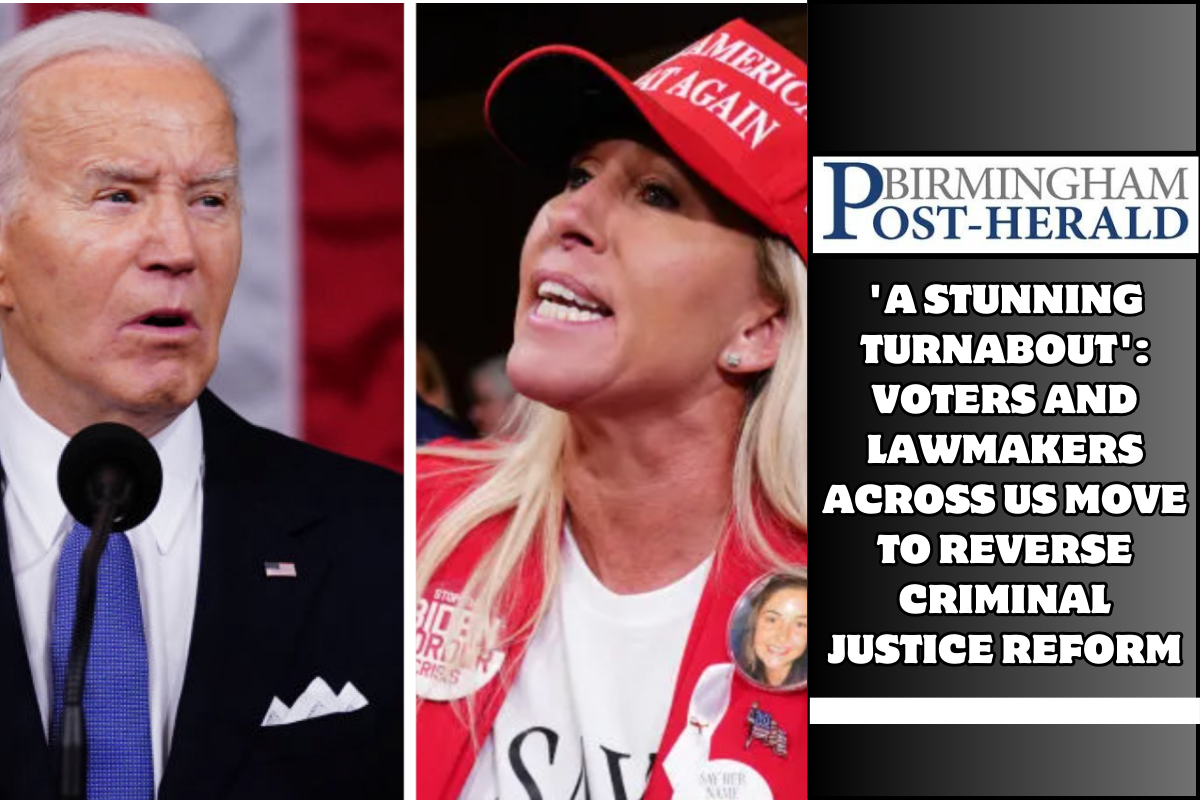‘A stunning turnabout’: Voters and lawmakers across US move to reverse criminal justice reform:-Less than four years after the murder of George Floyd made a lot of people aware of how unfair the criminal justice system is, politicians all over the country are going back to being tough on crime. Voters and politicians are sometimes choosing to undo changes that were made years ago.
‘A stunning turnabout’: Voters and lawmakers across US move to reverse criminal justice reform
Tuesday, people in San Francisco voted in favor of two measures that would give cops more power and make getting welfare require addiction treatment. Tuesday, the D.C. Council also passed a set of public safety measures, which includes bringing back “drug-free zones.”
In Louisiana and Oregon, people have been trying to roll back changes, which led to the votes on Tuesday.
This is a shocking change, especially since there were so many protests across the country against the system for being too harsh, says Adam Gelb, President and CEO of the independent Council on Criminal Justice.
Gelb said that the 50-year pattern of reform and restrictions for makes it look like we are going back to harsh policies, but that’s not the whole story.
“I think there’s very little chance that we return fully to the notion that we can arrest and punish our way to safety.”
Pendulum swinging across decades led to reforms during last 15 years
In the 1970s, there was a rise in crime after a wave of reforms in the 1960s, Gelb said. This trend of swinging back and forth between restrictions and reforms is like a pendulum. Gelb said that the 1980s were known as the “get tough era” and the crack epidemic. Over the next 30 years, mandatory sentencing, a lot of new prisons, and stricter drug laws caused the jail population to grow very quickly.
President Bill Clinton signed the Violent Crime Control and Law Enforcement Act of 1994 during this time. The Brennan Center for Justice says it is one of the most complete federal crime bills in history, but it has a “complicated” legacy because it led to a lot of people being locked up.
A 2010 congressional report said that by 2007, one in thirty-one people in the U.S. was in the care of the prison system. This made the U.S. the country with the highest per capita incarceration rate in the world.
Both Democrats and Republicans wanted to lower those groups. For example, former President Donald Trump signed the 2018 First Step Act into law to improve the outcomes of criminal justice while keeping crime low. However, the Pew Trust said that between 2007 and 2017, more than 30 states had passed rules to lower the number of people in prison. Louisiana was part of that.
Louisiana, Oregon repeal previous reforms, critics say ineffective in public safety
In an opinion piece published by the USA TODAY Network’s Shreveport Times, Louisiana Gov. Jeff Landry directly linked “rampant crime” to the 2017 law signed by the previous governor.
The Plaquemine Post South reported that he started a Legislative Special Session to talk about crime. One of the things he did was get a bill passed that undid a law from 2017 so that judges can now prosecute 17-year-olds as young adults.
Last week, Landry signed 19 bills into law. These included more ways to carry out the death sentence and fewer chances for parole and early release.
Matthew Willard, Chairman of the House Democratic Caucus in New Orleans, said that some of the moves were bad and wouldn’t do anything to stop crime before it happens. It was said that the ACLU of Louisiana was against two of the bills because they would cost a lot of money and not help lower crime right now.
Concerns were made in Oregon, where the House passed a bill that undid part of Measure 110, a law that voters approved in 2020 to make drug possession less illegal. The Statesman Journal stated that people who are against the new bill say the state’s criminal justice system is already overworked and that recriminalizing would hurt Black and Latino Oregonians more than white Oregonians.
Executive head of the Health Justice Recovery Alliance Tera Hurst also said it wouldn’t help lower crime rates right now.

Also Read:-70-foot sperm whale beached on sandbar off coast of Venice, Florida
